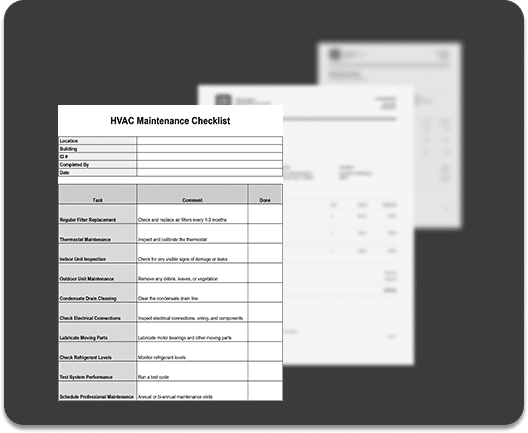Special issue blog series on Transformational Change through Public Policy.
 Guest edited by co-editors Oscar Berglund, Claire Dunlop, Elizabeth Koebele and Chris Weible
Guest edited by co-editors Oscar Berglund, Claire Dunlop, Elizabeth Koebele and Chris Weible
The 2020s are turbulent times, from COVID-19 to cost-of-living crises, violent and institutionalised racism, attacks on women’s and LGBTQ+ rights, and beyond – all against the backdrop of rapid climate change. Meanwhile, symbolic action and agenda denial are widespread responses whilst polarisation and authoritarianism increase. The impetus for this Policy & Politics 2022 special issue on “Transformational Change through Public Policy” (see below for table of contents) comes from a sense of unease about the lack of action on these challenges and the role public policy studies may play in addressing them.
So much of our discipline seeks to understand policy change to address major societal issues like the ones listed above. Yet, we have found that most change tends to be incremental. Moreover, scholarship often muddies the distinctions between policy change and the transformational societal change that we hope will result. The challenge that we pose to the field of Public Policy with this special issue is whether it is up to the job of developing a coherent research programme to build knowledge and enable necessary, positive transformational change to address the grand challenges of our time.
In our introductory article, we address how our discipline may contribute to transformational change around the topic of climate governance. We set out five questions to guide discussion.
- What is it about the field of Public Policy that can be useful in achieving societal transformations, such as those necessary to avert climate catastrophe?
While many other disciplines focus on what kind of changes would be needed to mitigate and adapt to climate change, policy scholarship can tell us how we get there from where we are now. We are well placed to ask what various policy actors can do to make transformational change more likely and how to speed up such change.
If this first question addresses why transformational change needs us, the next four questions are about how we need to expand our horizons to contribute to transformational change.
- What questions do we need to ask in order to explore opportunities for transformational change around climate and other grand challenges?
Other disciplines have suggested how economies and democratic systems need to be transformed through green growth, degrowth or deliberative democracy. Policy scholars ought to ask questions that can help us understand and react to our world to foster transformational change in these areas. Besides focusing on formal and informal policy change (at which we excel), we need to use our granular expertise to ask the bigger questions about how policy changes impact society.
- What actors and whose agency do we need to study to bring about societal transformational change around climate and other salient but neglected issues?
Public policy scholarship needs to pay much more attention to less institutionalised grassroots actors. Engaged citizens and social movements often have greater policy impact than they are given credit for. And historically, social movements have played major parts in positive transformational change. The creation of the welfare states in Europe and North America, which serve as inspiration for those seeking a Green New Deal, are cases in point here with strong and committed labour movements.
- Who do we need to speak to?
Here, our answer is that our audiences ought to be those policy actors inside and outside of the halls of power who seek transformational change. A sizeable portion of policy studies focus only on the former – professional and often elite ‘insider’ policy actors. Yet if policy scholars are to contribute to disruptive, transformative change, we must take an inclusive approach by speaking to real people in real places. Engaging effectively with these audiences leads us to our next question.
- How do we need to expand our methodological and theoretical approaches to advance knowledge and promote action on transformational change in climate and other areas?
Scholarship on transformational change needs the combination and collaboration of mainstream and critical scholarship that we called for in our previous special issue. The ability to draw practical lessons through the use of strong methods and theories is perhaps Public Policy’s most important contribution. However, this means we need to keep challenging our methods and theories and the practice of our science.
Many who seek to understand transformational change turn to Peter Hall’s concept of paradigm change. We see that as a good starting point but also one with limitations, not least because it was based on a very elite-driven and regressive case of policy change. We therefore encourage policy scholars to draw more on the broader cannon of social theorists from across the social sciences and humanities who study transformational change.
Lastly, the articles in this special issue lead us to five points for establishing a research programme on this theme:
- If transformational change can be achieved through public policy, it often does not result from a single instance of policy change but many instances of policy changes that interact in ongoing processes of feedbacks over extended periods of time (Nohrstedt; Sewerin et al.).
- Achieving transformational change through public policies necessitates sufficient force, often through social movements that reconceptualise problems and possibilities (Joy & Vogel).
- Transformational change often requires policy changes across sectors and levels of society, from local communities (Boullosa & Peres; Levac et al.; Joy & Vogel) to national or global communities (Nohrstedt; Tosun et al.; Sewerin et al.).
- Drawing insights from the field of public policy will never offer detailed instructions to create transformational change in all circumstances; instead, it can provide ways to think about the challenges we face and strategies for overcoming them (Cairney et al.).
- Studying transformational change through the lens of public policy necessarily involves scholars taking on different roles, from engaged scholarship (Levac et al.) to theory development (Nohrstedt; Sewerin et al.; Cairney et al.), as each provide unique contributions.
Introduction to Transformational Change through Public Policy (Oscar Berglund, Claire Dunlop, Elizabeth Koebele and Chris Weible)
The impact of direct democracy on policy change: insights from European citizens’ initiatives (Jale Tosun, Daniel Béland & Yannis Papadopoulos)
The democratic transformation of Public Policy through community activism in Brazil (Rosana de Freitas Boullosa & Janaína Lopes Pereira Peres)
Lessons from policy theories for the pursuit of equity in health, education, and gender policy (Paul Cairney, Emily St Denny, Sean Kippin, Heather Mitchell)
A Future Research Agenda for Transformational Urban Policy Studies (Meghan Joy & Ronald K. Vogel)
Transforming Public Policy with Engaged Scholarship: Better Together (Leah Levac, Alana Cattapan, Tobin LeBlanc Haley, Laura Pin, Ethel Tungohan, & Sarah Marie Wiebe)
When do disasters spark transformative policy change and why? (Daniel Nohrstedt)
New pathways to paradigm change in Public Policy: Combining insights from policy design, mix and feedback (Sebastian Sewerin, Michael Howlett & Benjamin Cashore)
The views and opinions expressed on this blog site are solely those of the original blog post authors and other contributors. These views and opinions do not necessarily represent those of Policy & Politics, the Policy Press and/or any/all contributors to this site.


















